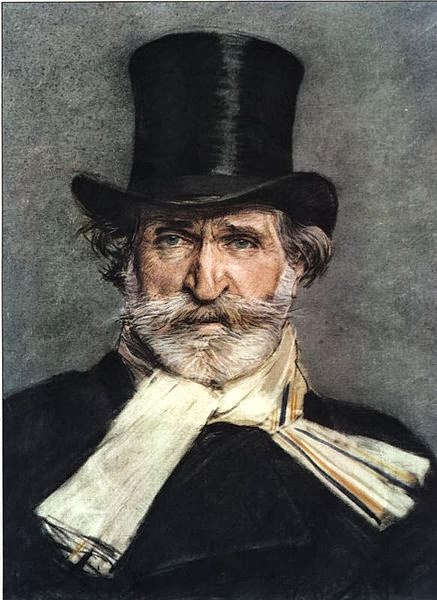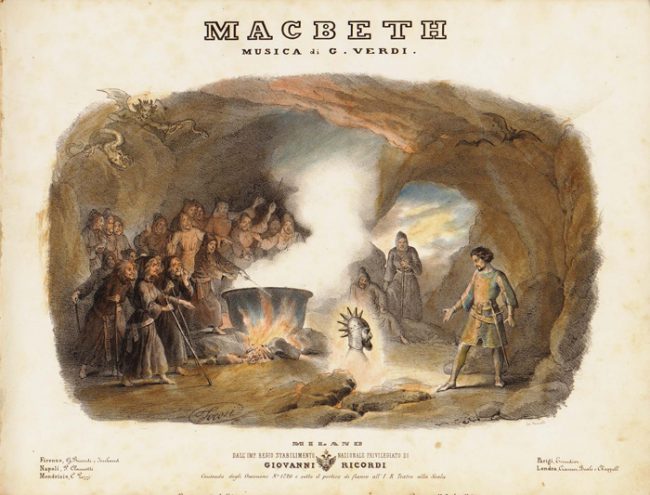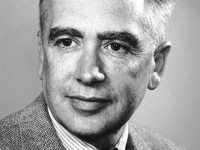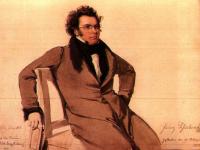
Giuseppe Verdi (1813 – 1901)
On October 9 or 10, 1813, famous Italian composer Giuseppe Verdi was born. He is primarily known for his romantic operas, and together with Richard Wagner, Verdi is considered the most influential composer of operas of the nineteenth century.
“I wish that every young man when he begins to write music would not concern himself with being a melodist, a harmonist, a realist, an idealist or a futurist or any other such devilish pedantic things. Melody and harmony should be simply tools in the hands of the artist, with which he creates music; and if a day comes when people stop talking about the German school, the Italian school, the past, the future, etc., etc., then art will perhaps come into its own.”
– Giuseppe Verdi (1875)
Guiseppe Verdi Background and Early Career
The future musician moved to Bosetto with his family very early in his life, where he also got taught in composition. In his early 20s, Verdi went on to Milan and took private lessons next to attending numerous plays. It is known that he enjoyed mostly German music in this period, which influenced him quite alot. When he returned to his hometown, he became a music master and was supported by Antonio Barezzi, who organized a few performances for Verdi. In 1838 Verdi went to Milan. After a lost, unlisted debut under the title Rocester or Lord Hamilton, his opera Oberto conte di San Bonifacio was successfully performed at Milan’s Scala in November 1839. In June 1840 Verdi’s wife Margherita died of encephalitis at the age of 26 when Verdi was working on his next piece, the comic opera Un giorno di regno. The performance was booed andVerdi, who deeply mourned the death of his wife and children, decided depressed to give up composing.
Breakthrough
Luckily Verdi continued and wrote Nabucco, which made him instantly famous in 1842. From there, Verdi was hit by a huge working period that lasted about 15 years. He created 14 operas and one of the most famous of these years was ‘Macbeth‘, which was first staged in 1847 and succeeded instantly.

Macbeth-meets the witches
In 1851, another masterpiece Verdi’s premiered, it was ‘Rigoletto‘ and based on Victor Hugo’s play. Verdi had to change major parts of the piece to satisfy the censorship. Still, his idea of the musical drama full of contemporary social and cultural aspects was a great success, and the composer was able to increase his fame all over Europe. In choosing his literary models he applied high standards, a sign that his private studies had borne fruit in the thirties. Victor Hugo provided him with the models for Ernani and Rigoletto, Shakespeare for Macbeth, Lord Byron for I due Foscari (“The Two Foscari“) and Il corsaro (“The Corsair“), Voltaire for Alzira and Friedrich Schiller for Giovanna d’Arco after the drama The Robbers and finally Luisa Miller for Kabale and Liebe. Shakespeare’s King Lear also occupied him several times in the following years, without it coming to a composition of Re Lear.
Influence
Giuseppe Verdi was one of the leading composers of his period, another was Richard Wagner. Both had a great influence on the music and culture of the 19th century but never spoke a nice word about each other, even though they never actually met. Verdi once even said that Wagner “invariably chooses, unnecessarily, the untrodden path, attempting to fly where a rational person would walk with better results“. And when Verdi’s Requiem was played, Wagner only commented that “it would be best not to say anything“. Verdi’s last opera was ‘Falstaff‘ and succeeded internationally and in the following period he published further, but smaller pieces.
Verdi’s Aida with Scott Eyerly : A Julliard Virtual Lecture Series Proudly Supported by IFAC, [12]
References and Further Reading:
- [1] Der Ohrwurmkönig
- [2] Giuseppe Verdi: a model of integrity at The Telegraph
- [3] Giuseppe Verdi at Classical Archives
- [4] Richard Wagner – Genius and Megalomania, SciHi Blog
- [5] Brush Up Your Shakespeare, SciHi Blog
- [6] ‘Art is the Daughter of Freedom’ – Friedrich Schiller, SciHi Blog
- [7] Wicked Lord Byron’s Wonderful Poetry, SciHi Blog
- [8] Franz Liszt – Rockstar of the 19th Century, SciHi Blog
- [9] Mozart’s Famous Masonic Opera – The Magic Flute, SciHi Blog
- [10] Rocking the Baroque – Johann Sebastian Bach, SciHi Blog
- [11] Verdi at Wikidata
- [12] Verdi’s Aida with Scott Eyerly : A Julliard Virtual Lecture Series Proudly Supported by IFAC, 2020, IFAC – International Foundation for Arts & Culture @ youtube
- [13] Gossett, Philip (2012). “Giuseppe Verdi and the Italian Risorgimento (Jayne Lecture, 2010)”. Proceedings of the American Philosophical Society. 156 (3): 271–82.
- [14] Kimbell, David R. B. (1981). Verdi in the Age of Italian Romanticism. Cambridge: Cambridge University Press.
- [15] Martin, George (1984). Verdi: His Music, Life and Times. New York: Dodd, Mead and Company.
- [16] Osborne, Charles (1969). The Complete Opera of Verdi. New York: Da Capo Press, Inc.
- [17] Verdi Timeline via Wikidata





